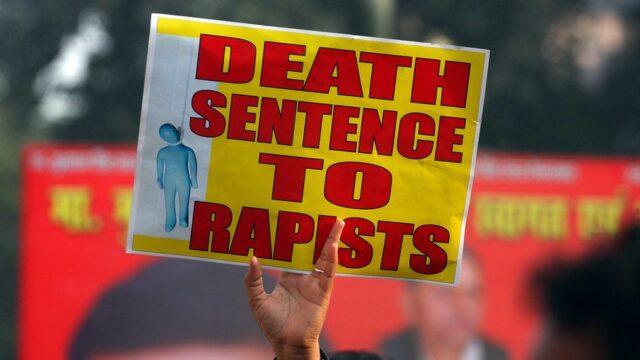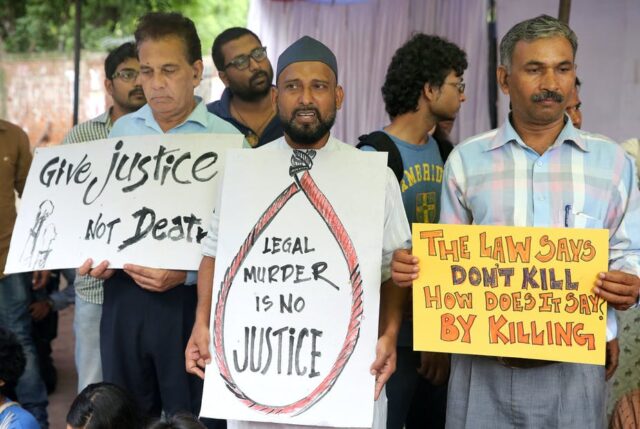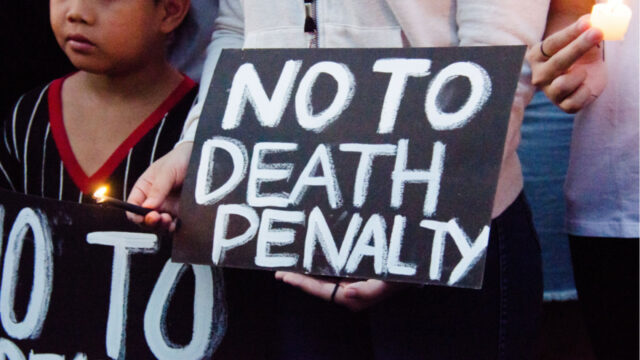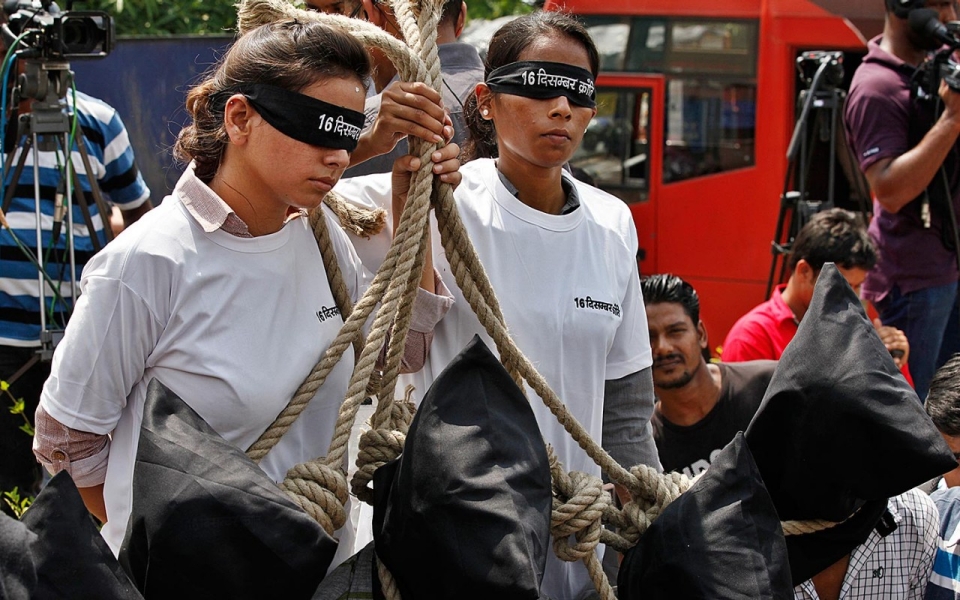The Shakti Criminal Laws (Maharashtra Amendment) Act was unanimously enacted by the Maharashtra Assembly on Thursday, December 2. After Andhra Pradesh, it became the second state in India to accept the death sentence for horrific rape and gang rape offenses with the approval of the Bill.
Changes to the Indian Penal Code’s rape, gang rape, acid attacks, and sexual harassment legislation, as well as provisions of the Protection of Children from Sexual Offences (POCSO) Act and corresponding articles of the Criminal Procedure Code, were enacted by the Assembly.
Major Amendments

- The Act modifies current criminal laws to include the death penalty as a punishment for rape and gang rape “in cases which have the characteristic of offense is heinous in nature and where adequate conclusive evidence is there and the circumstances warrant exemplary punishment, with death”.
- The penalty for penetrative sexual assault in severe cases has also been increased to the death sentence under the POCSO Act.
- The Act mandates that the trial in certain instances be conducted on a daily basis and completed within 30 working days following the chargesheet filing. It further stipulates that the investigation must be completed within one month after the filing of the FIR, with the exception that the concerned Special Inspector General of Police or Commissioner of Police may extend the time limit for specific reasons stated in writing.
- In situations of grave bodily harm caused by acid attacks, the penalty has been increased to a minimum of 15 years under section 326A, which can be extended to the rest of the perpetrator’s natural life, as well as a fine.
- The penalty for voluntarily throwing acid or attempting to hurl it has been increased to a minimum of seven years and a maximum of ten years under section 326B. The fine would be used to cover medical expenses such as plastic surgery and face rebuilding in these circumstances, according to the Act.
- The Act establishes a specific legal provision for sexual harassment. In addition to insulting modesty, Section 354E of the IPC has been added for intimidation of women through any method of communication.
- Whoever, man, woman, or transgender, does anything to “create a sense of danger, intimidation, or fear to a woman” by any act, including offensive communication by telephone, email, social media, or any other digital mode that is ‘lascivious or lewd’ in nature, is defaming or causing disrepute or uses a woman’s name, particulars, photographs, to violate her privacy or outrage her modesty, will be punished for a maximum of Threats to upload or disseminate any sound or video file, including a genuine or fictional portrayal of any part of a woman in any sexual act, are likewise covered by this section.
- The Act has put those staffers or contractual employees who provide protection or maintenance to a building in the list of those who are liable to an increased penalty for rape.
- The Act also requires social media platforms and mobile data companies to share data requested for the purposes of investigation in cases of rape, sexual harassment, acid attacks, and other relevant “provisions under the POCSO Act within three working days, or face a maximum of three months in prison and/or a fine of Rs 25 lakh.”
- In cases of rape, sexual harassment, and acid attacks, the Act includes a provision for punishment of 1-3 years in prison and a fine of up to Rs 1 lakh for anyone “who makes a false complaint or provides false information against any person solely with the intention to humiliate, extort, threaten, defame, or harass” in rape, sexual harassment, and acid assaults cases.
- According to the Act, only sessions courts and higher courts can rule on bail in situations of acid assaults, rape, and gang rape. Anticipatory bail has also been disallowed in such circumstances.
Also Read: Code Red For Humanity As Two Mothers Allow Shopkeeper To Rape Their Daughters As Payment
Is It A Bad Thing?

When the Bill was first introduced last year, 92 signatories signed a letter to the Chief Minister opposing the proposed revisions, including notable lawyers, child rights organizations, and women’s organizations. It has been proposed that increasing the penalty to the death penalty may be counterproductive.
It was stated that in many cases where the attackers are family members or known to the victims, especially youngsters, finding assistance to approach authorities would be difficult, resulting in crimes going unreported.
It was also argued that it would put victims’ lives in jeopardy because murder and rape are both punishable by death. Instead, they argued that current rules could be effectively implemented to make it simpler for victims to obtain justice.
Justice BG Kolse-Patil, a retired Bombay High Court judge, described the Shakti Act as “draconian,” claiming that it may be used to settle political scores. He also stated that when death sentences are abolished around the world, there is a need to reconsider the death penalty as a punishment.
Experts have also pointed out that the revulsion felt by society against the murderer can only be resolved by the offender’s death, according to a popular argument for the death penalty. As a result, the death penalty is used to establish a deterrent effect in society, where individuals are afraid of the repercussions of their actions. However, studies have found no link between the death sentence and crime rates, so the deterrence argument is invalid.
The Law Commission of India further stated in its Report No. 262 on the death sentence, issued in 2015, that, “[t]he notion of “an eye for an eye, tooth for a tooth” has no place in our constitutionally mediated criminal justice system. Capital punishment fails to achieve any constitutionally valid penological goals.”
What Is The Answer Then?

We, as human beings, must realize one thing above all. It is that opinions are not facts. Instead of trying to satisfy subjective, individual definitions of justice, the system must focus on the root of it all.
Then again, an argument arises: where is the root? Is it at the birth of a male in a family where giving birth to a female child is forbidden? Is it a lack of education? Lack of awareness? You can’t pinpoint the problem or theorize the grotesqueness in the mentality of a rapist.
What we can do is not take justice into our hands, as promoted Bollywood movies, justifying a mass mentality of violence.
We can raise our voices towards the amendments of the Acts which are already in motion so that they are more easily understood and accessible, and no matter how powerful or mentally sick the perpetrator is, he is punished in ways worse than death.
Image Sources: Google Images
Sources: The Indian Express, The Hindu, The Times of India
Connect with the Blogger: Debanjan Dasgupta
This post is tagged under: The Shakti Criminal Laws, Maharashtra Amendment, Andhra Pradesh, Indian Penal Code, Protection of Children from Sexual Offences (POCSO), Criminal Procedure Code, POCSO Act, Special Inspector General of Police, Commissioner of Police, section 326A, section 326B, Section 354E, IPC, sexual harassment, rape, gang rape, acid attack, victim, criminal, psychopath, perpetrator, court, supreme court, Chief Minister, The Law Commission of India, Report No. 262, Justice B G Kolse-Patil, Bombay High Court
































[…] Now Two States Have Death Penalty For Rape: Know All About It Here […]